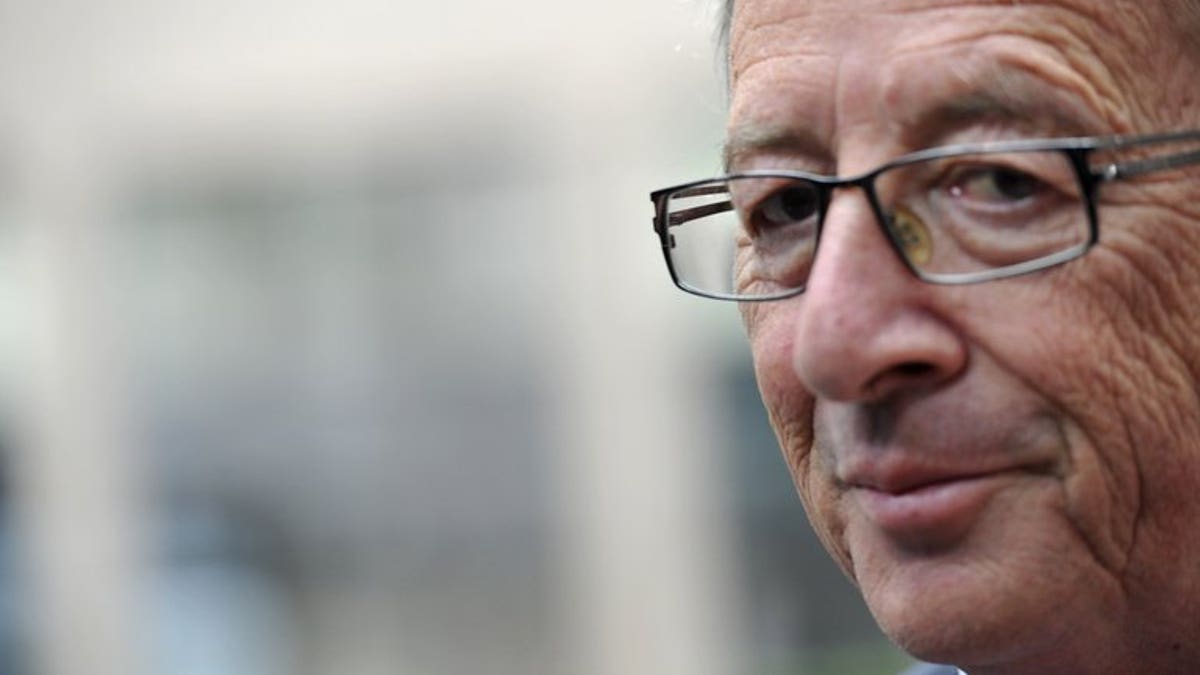
Luxembourg Prime Minister Jean-Claude Juncker, pictured June 27, 2013, said he would step down over a scandal involving the secret services, who were alleged to have indulged in a spate of misconduct on his watch. (AFP)
LUXEMBOURG (AFP) – Luxembourg Prime Minister Jean-Claude Juncker, Europe's longest-serving leader, Wednesday said he would step down over a scandal involving the secret services, who were alleged to have indulged in a spate of misconduct on his watch.
After his junior coalition partner, the Socialists, put down a motion calling for the dissolution of parliament and early elections, Juncker said he would hand in his resignation to the head of state on Thursday morning after a cabinet meeting.
"There was no other choice than to hand in the government's resignation," said Juncker.
Though aged only 58, Juncker has been in office for 18 years and in government for 30. He is best known in Europe for a tumultuous eight-year stint as head of the eurozone finance ministers group, which ended in January.
In a rare political drama in tiny uneventful Luxembourg, the parliament examined a report alleging that the country's SREL secret service, which the premier is supposed to oversee, had indulged in a series of misdemeanours from 2003 to 2009 that included illegal phone-taps, corruption, and even a dodgy car dealership.
"The intelligence service was not my top priority," Juncker told parliament earlier Wednesday. "Moreover I hope Luxembourg will never have a prime minister who sees SREL as (his or her) priority."
Socialist leader Alex Bodry said earlier Wednesday that he expected "a strong gesture" from Juncker but feared he had "chosen another option."
"When one thinks one is infallible it's hard to admit to making mistakes," he told the Luxemburger Wort daily.
Bodry later told parliament: "The prime minister has to take responsibility not because he is dishonest or incompetent but because he made bad choices."
The report was put together by a parliamentary committee after a Luxembourg weekly last year published verbatim a secretly taped conversation in 2007 between Juncker and the then head of SREL, Marco Mille.
In the recorded conversation, Mille revealed that his staff had also secretly taped a conversation with Luxembourg's Grand Duke and that the sovereign was in regular contact with Britain's MI6.
But the parliamentary inquiry set up in the furore that ensued uncovered more dirt: the existence of 13,000 secret files on people and businesses, illegal wire-taps on business leaders, a counter-terror operation that in fact was a front to help a Russian oligarch pay 10 million dollars to a Spanish spy, and even a murky private dealership in luxury cars.
"The commission of inquiry concludes that the prime minister, as head of the intelligence service, not only had no control over his service but also too often omitted to inform the parliamentary control committee or the judiciary of its irregularities, aberrations and illegalities," the report said.
Addressing the chamber, Juncker hit back, saying the committee had failed to exercise its supervisory powers over the secret service. "It could've controlled it ... It did not."
Juncker last month survived the duchy's first confidence vote in 150 years over a separate scandal. The last confidence motion in Luxembourg was in 1848 and led to the fall of the government.
A fixture on the European scene and a passionate defender of the euro and the European dream, Juncker steered a tricky path during the financial crisis between the bloc's top two economies, France and Germany, who often held sharply differing views.
"When I want to speak in French, I think in German; when I want to speak in German, I think in French, with the result that I am totally incomprehensible," he joked typically at one stage.
Throughout his career, he was never afraid to speak out.
He has "two fatal flaws -- he has an opinion and he is not afraid to share it", said one European official.








































